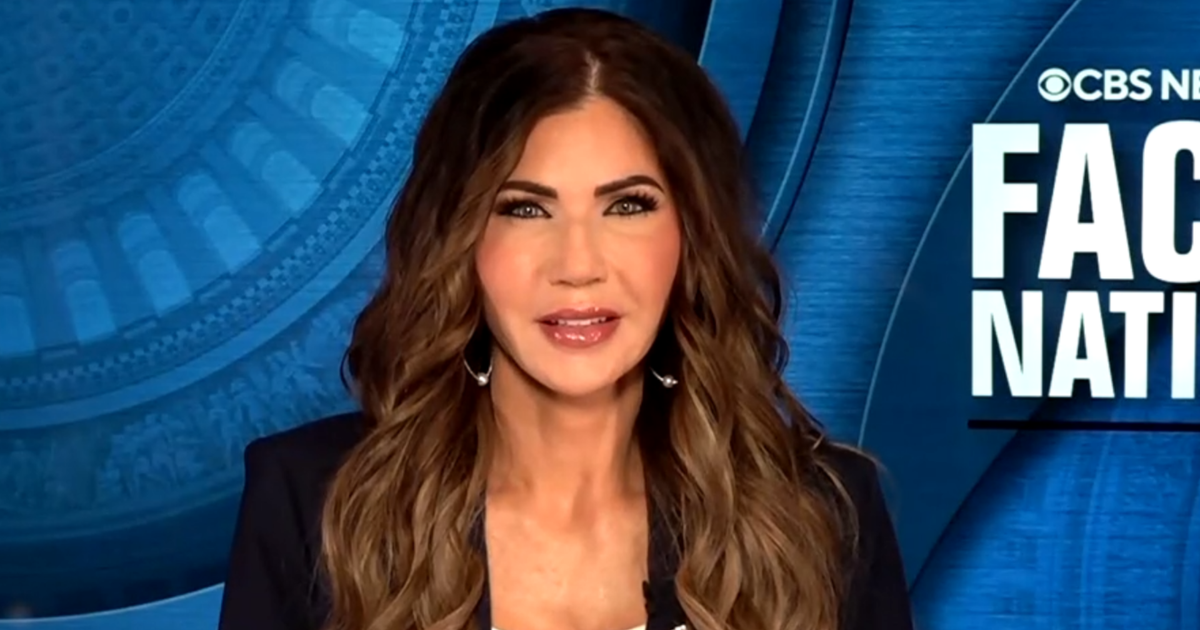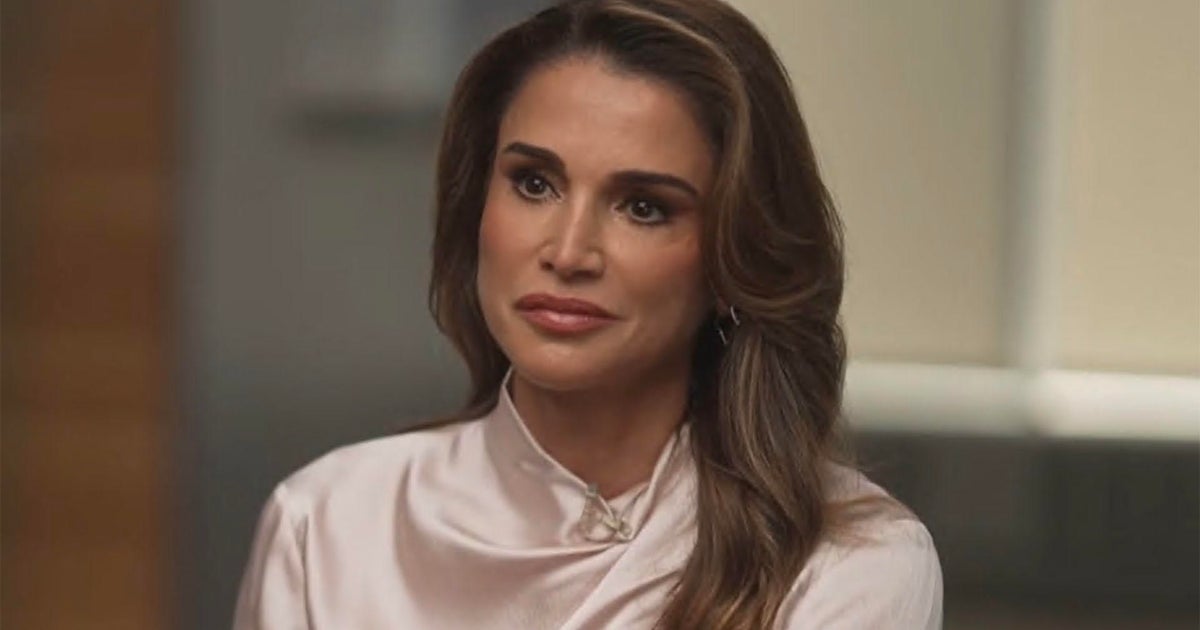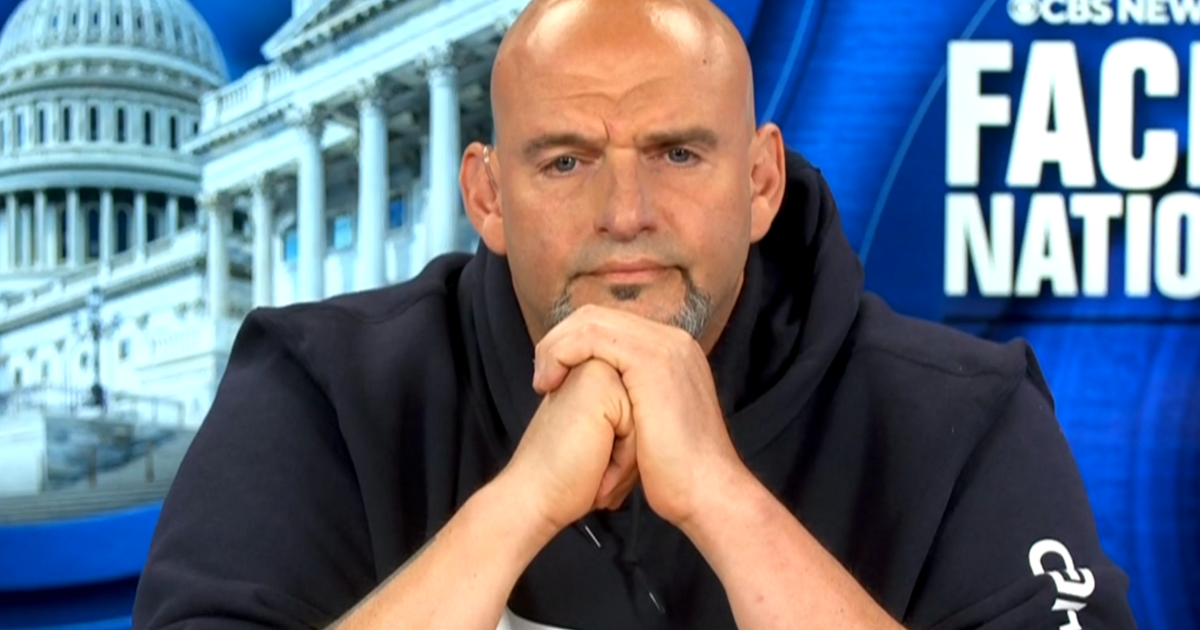ICYMI: Top takeaways from this week's "Face the Nation": COVID-19 and the 2020 election
This week on "Face the Nation", new coronavirus cases decline in the U.S. but the death toll rises. Congress and the White House fail to strike a deal, and the president decides to go it alone.
Here's the big takeaways from Sunday's episode of "Face the Nation"
1. Robert O'Brien warns countries of "severe consequences" for election interference
- In his first interview since recovering from COVID-19, Ambassador Robert O'Brien told "Face the Nation" that while he had a mild bout it is a "nasty virus and its done great damage to our country." He said the Trump administration is working on getting portable and fast testing machines to be available for quick testing as well as therapeutics.
- In the meantime, the country is preparing to vote during the pandemic for the first time in U.S. history. Democrats have pressed for more funding for election security to help with that effort, and O'Brien said he does hope that another deal will be reached with Congress before November.
- The vulnerability of the U.S. is a real risk: U.S. intelligence released a statement from the NCSC on Friday warning that foreign powers, specifically Russia, China and Iran have candidate preferences and are trying to shape the political conversation in the US. O'Brien went a step further on "Face" and detailed what he described as attempts to tinker with U.S. election infrastructure including trying to access secretary of state websites to collect data on Americans and engage in influence operations.
- What O'Brien said: "China, like Russia, like Iran, have engaged in cyber-attacks and phishing and that sort of thing with respect to our election infrastructure, with respect to websites and that sort of thing. We're- we're aware of it and we're- we're taking steps to counter it."
- Why it matters: We pressed O'Brien on the intelligence community's reference to Russia's active campaign to "denigrate" the Democratic nominee Joe Biden and the Kremlin attempts to bolster Donald Trump. These patterns are very similar to what happened in 2016. Russia appears undeterred. O'Brien insisted the administration has done virtually everything it can to stop Russian interference.
- "I don't want foreign governments to support Joe Biden to influence our elections. I don't want foreign governments to support President Trump to influence our elections. The American people should decide our elections." O'Brien instead insisted the Trump administration has been extremely firm in its messages to Vladimir Putin, saying "there's almost nothing we can sanction left of the Russians."
2. Gottlieb: U.S. could reach 300,000 COVID deaths by end of the year
- With more than 5 million confirmed infections in the U.S. now, former FDA Commissioner Dr. Scott Gottlieb warned that COVID19 is being so pervasive that it may begin hitting rural areas and become more difficult to control.
- What Gottlieb said: "Well, we're definitely going to be somewhere between 200,000 and 300,000, and whether we're closer to 200,000 or closer to 300,000 depends on what we do and how this evolves. We've now had two waves of this epidemic, the New York wave and now the wave through the Sunbelt, which is receding, although Texas is showing signs of an uptick at least in the last week and that needs to be followed closely. We're probably going to have another wave. And the concern now is that this has become so pervasive across the country that it could start to infect more rural communities that have largely been untouched to date and probably are a little bit more complacent because they have been untouched, but are still very vulnerable because the infection hasn't been there. And if- if this does become more pervasive across the country and it's not just in the urban centers, but also in more rural parts of the country, that's going to be far more difficult to control if it's more widespread. And we're seeing indications of that right now, the way it's spreading in the Midwest and the west."
- National security risk to COVID? This week the Trump administration warned that Russia is using disinformation about COVID-19 and vaccines as information warfare against the U.S. Dr Gottlieb warned that the US has shown how uniquely vulnerable it is to a pathogen like this and that has been noticed by our adversaries.
- What Gottlieb said: "I think our country is vulnerable to this pathogen because we have unique risks owing to our federal system, owing to our culture, and we also have some vaccine hesitancy. So it's going to be very important to imbue confidence in the vaccine when it eventually does come through the authorization or the approval process by FDA. So I think we're vulnerable to that kind of information. The other thing to think about here is that this has now posed an asymmetric risk for the United States. Other countries looking in now can conclude that a respiratory pathogen poses a greater danger to the United States than perhaps other nations that have been grappling with this more successfully. And so it was always thought that a rogue nation would never unleash a pathogen deliberately. And I'm not saying this was a deliberate pathogen--
- Why it Matters: Gottlieb explained that there have been two waves of the coronavirus epidemic in the U.S., with the first occurring in New York and the second in the Sun Belt, where it is now receding. But he predicted the country will likely experience a third wave.
3. Mayor Lucas:
- Coronavirus Task Force Coordinator Dr. Deborah Birx called the Mayor of Kansas City Quinton Lucas last week out of concern regarding rising infection rates in his city. He said that he is evaluating taking Dr. Birx's advice to further limit restaurant and bar capacity to avoid a spike in infections. He said that he appreciated the call but needs more specific guidance to help institute changes especially at the regional level. Lucas said he asked Dr. Birx for additional written documentary information to share with the public in KC but did not receive it.
- What Mayor Lucas said: "I mean, one of the challenges that a lot of Midwestern and Southwestern cities are having is that we are surrounded by states that don't have things like mask orders, that don't have some of the same social distancing and restaurant rules we have. So every rule that we impose, we're surrounded in the state of Missouri and Kansas by a number of jurisdictions that lack it. So we would like consistency largely from the White House to help make it clearer what we need to do to stop the spread here in the central United States."
- The Mayor also said his city needs more money for testing and to help offset the economic hit that comes with limiting businesses. He said he believes that there will be further layoffs. "Those who work for state, local, county governments are going to deal with the brunt of it. We're talking about furloughs."
- Why it matters: Mayor Lucas voiced a common concern for leaders in hotspot states, particularly in the Midwest -- with a lack of national strategy, states are left to fend for themselves on when to communicate to their residents when it's "safe" to return to "normal."
4. Lamont:
- Congress and the White House failed to reach a deal to provide more funding for testing and aid to states. The $600 a week federal boost to unemployment also expired. Connecticut Governor Ned Lamont said he'd like the federal government to step up and extend the unemployment a bit longer. The interim solution offered by President Trump was to redirect funds from FEMA to provide an extra cushion to the unemployed but only if Governors contribute 25% of the cost. Does Connecticut have that funding to kick in?
- What Lamont said: "Look, that would cost us about $500 million dollars between now and the end of the year. I could take that money from testing. I don't think that's a great idea. I could take that money from, you know, mass disinfecting for our schools. I don't think that's a great idea. In fact, I think the president's plan is not a great idea."
- A push for reopening: Connecticut is reopening schools in part beause its infection rate is so low. Lamont explained why he thinks that is possible.
- "So first of all, we are one of the first states in the country to close down schools and we've been very cautious as we reopen the rest of our economy. And Dr. Fauci has been helpful. Scott Gottlieb, your next guest, very helpful. Kept a very low infection rate, about one percent, one of the lowest in the country over the last six, seven weeks now. So I think if Connecticut can't get reopened, I don't know who can around the country. And we're doing it led by public health, making sure everybody's wearing the masks, making sure that we have the Plexiglas where needed cohorting. So the one 5th grade class doesn't party with another 5th grade class. And I think we're going to give our kids the best shot for classroom education."
- Why it matters: Lamont referred to the lack of access for those nearly 200,000 as a "tragedy." But for many states across the country -- that drop-off in learning will be a harsh reality as many school districts, especially ones that service more low-income communities, attempt to bring learning back online for the fall semester.
5. Chicago Fed's Evans on impacts of Congress' stalled talks
- The failure to provide funding to states and local governments will result in further job losses, according to Chicago Federal Reserve President Charles Evans. "I think that public confidence is really important and another support package is really incredibly important." He said income inequality is being exascerbated. Will the failure of the White House and Congress to reach a deal hurt the economy?
- What Evans said: "You know, so if you look at the economic outlook, there are some negative scenarios and the ones that are most pessimistic involve not supporting state and local governments. I think you heard the Connecticut governor say that if he has to put 25% support against the president's executive order support for unemployment insurance, then that's going to cut back on other things. States have to balance their budgets. They are experiencing reduced tax revenues. And so there will be employment reductions. State and local governments account for about 10% of employment in the United States. And so that's really another leg down, I think. Paycheck protection has been very useful. Extending that to small businesses also would be very helpful. You know, in Chicago, we've had some panels. We've talked to people in neighborhoods, middle income, minority neighborhoods. And according to- to- to Stacie Young, the Preservation Compact, she's indicated that unemployment insurance has really helped low income workers pay their rent. They've been able to- in those neighborhoods, small businesses or landlords, and so that keeps the money in the neighborhoods and provides better food security"
- What it matters: While the nation continues to suffer dire economic straits, as Evans said, it's not the job of central bankers, it's up to fiscal policy, the lawmakers.
ICYMI: CBS News Battleground Tracker poll shows Biden leading in PA, WI
- With COVID-19 concerns running rampant, 2020 is not shaping up to be a mirror of 2016 in the case of two battleground states -- Pennsylvania and Wisconsin. CBS News' Elections and Surveys Director Anthony Salvanto unveiled the latest CBS News Battleground Tracker poll with a closer look at those key states.
- Find more of Salvanto's reporting from today's "Face the Nation" here
Missed Sunday's episode? Click here to watch the show. "Face the Nation" airs Sunday mornings on CBS. Click here for local listings.



